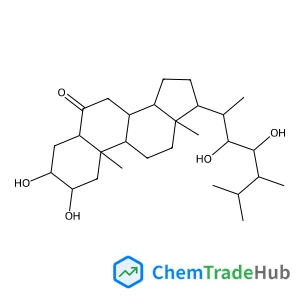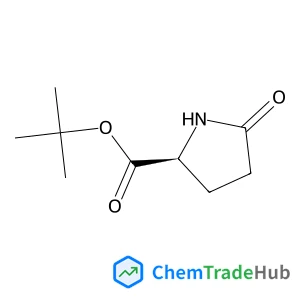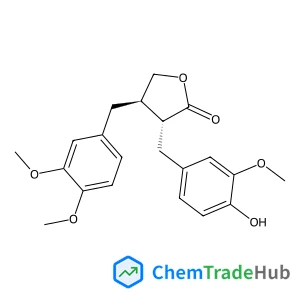Inducing and monitoring mitochondrial pH changes with an iridium(iii) complex via two-photon lifetime imaging
Literature Information
Meng Hu, Xin-Lan Zhou, Tian-Xin Xiao, Liang Hao, Yi Li
Real-time monitoring of mitochondrial dynamic changes plays a key role in the development of mitochondria-targeted anticancer theranostic agents. In this work, a pH-responsive and mitochondria-targeted cyclometalated iridium(III) complex MitoIr-NH has been explored as a novel anticancer agent. MitoIr-NH displayed pH-responsive phosphorescence intensity and lifetime, accumulated in mitochondria, showed higher antiproliferative activity and induced a series of mitochondria-related events. Moreover, MitoIr-NH could simultaneously induce mitophagy and quantitatively monitor mitochondrial pH changes through two-photon phosphorescence lifetime imaging microscopy (TPPLIM) in a real-time manner.
Related Literature
IF 6.222
Contents listIF 6.222
Strong circularly polarized luminescence of an octahedral chromium(iii) complexIF 6.222
Metal–organic frameworks: preparation and applications in highly efficient heterogeneous photocatalysisIF 6.367
Vapor-fed photoelectrolysis of water at 0.3 V using gas-diffusion photoanodes of SrTiO3 layersIF 6.367
A new neodymium–phosphine compound for supercapacitors with long-term cycling stabilityIF 6.222
Biomimetic hydrogels designed for cartilage tissue engineeringIF 6.843
A robust multifunctional ligand-controlled palladium-catalyzed carbonylation reaction in waterIF 6.222
Inside back coverIF 6.222
Electrospun hydrogels for dynamic culture systems: advantages, progress, and opportunitiesIF 6.843
Source Journal
Dalton Transactions

Dalton Transactions is a journal for all areas of inorganic chemistry, which encompasses the organometallic, bioinorganic and materials chemistry of the elements, with applications including synthesis, catalysis, energy conversion/storage, electrical devices and medicine. Dalton Transactions welcomes high-quality, original submissions in all of these areas and more, where the advancement of knowledge in inorganic chemistry is significant. Specific guidance for some areas of our scope is given below.
Recommended Compounds
Recommended Suppliers
 BioChain Incorporated
BioChain Incorporated Shandong Pingyuan Four Rings Pharmaceutical Co., Ltd.
Shandong Pingyuan Four Rings Pharmaceutical Co., Ltd. ENGEMANN u. CO. int. Spedition GmbH und Co. KG
ENGEMANN u. CO. int. Spedition GmbH und Co. KG Baoji Baoyi Titanium Nickel Manufacturing Co., Ltd.
Baoji Baoyi Titanium Nickel Manufacturing Co., Ltd. Shanghai Xusen Fine Chemical Technology Research Institute
Shanghai Xusen Fine Chemical Technology Research Institute Hubei Zhongshan Fenge Yongxue Keji Co., Ltd.
Hubei Zhongshan Fenge Yongxue Keji Co., Ltd. International Lab Supliers de México, S.A. de C.V.
International Lab Supliers de México, S.A. de C.V. Kernoxie (Taizhou) Pharmaceutical R&D Co., Ltd.
Kernoxie (Taizhou) Pharmaceutical R&D Co., Ltd. Shijiazhuang Ultrafine New Materials Technology Co., Ltd.
Shijiazhuang Ultrafine New Materials Technology Co., Ltd. Ferrer Internacional
Ferrer Internacional











![697235-38-4 - Methyl (1R,2R,3S,3aR,8bS)-6-({(2S,3R,6R)-6-[(1R)-1,2-dihydroxyethyl]-3-methoxy-1,4-dioxan-2-yl}oxy)-1,8b-dihydroxy-8-methoxy-3a-(4-methoxyphenyl)-3-phenyl-2,3,3a,8b-tetrahydro-1H-benzo[b]cyclopenta[d]
furan-2-carboxylate 697235-38-4 - Methyl (1R,2R,3S,3aR,8bS)-6-({(2S,3R,6R)-6-[(1R)-1,2-dihydroxyethyl]-3-methoxy-1,4-dioxan-2-yl}oxy)-1,8b-dihydroxy-8-methoxy-3a-(4-methoxyphenyl)-3-phenyl-2,3,3a,8b-tetrahydro-1H-benzo[b]cyclopenta[d]
furan-2-carboxylate](/structs/697/697235-38-4-ee3a.webp)

![25553-77-9 - 1-[2-(1,3-Dioxolan-2-yl)ethyl]piperazine 25553-77-9 - 1-[2-(1,3-Dioxolan-2-yl)ethyl]piperazine](/structs/255/25553-77-9-5274.webp)
